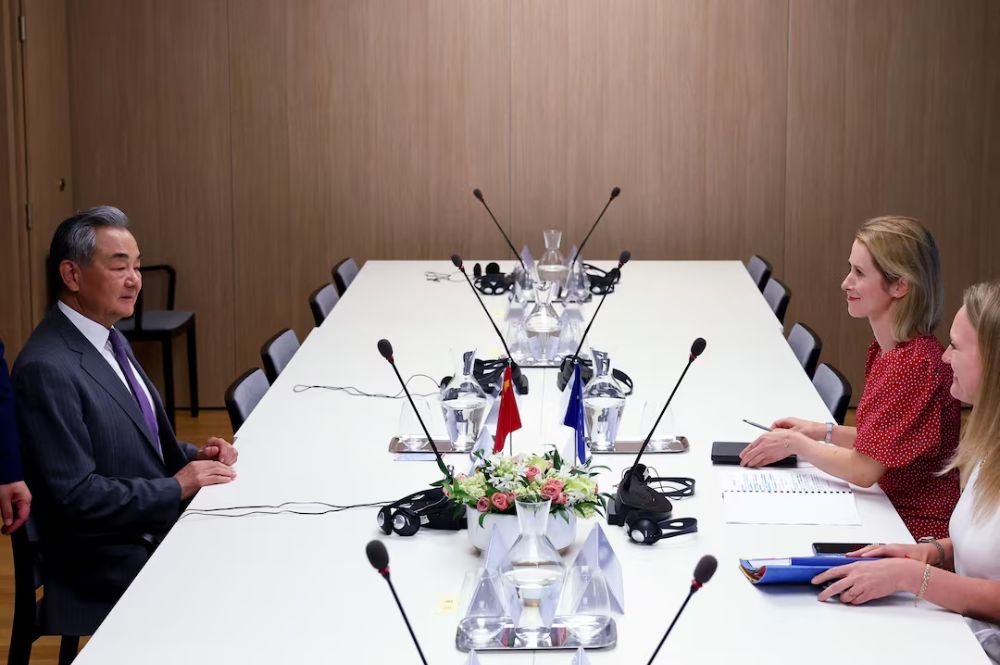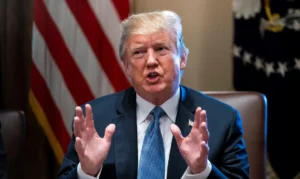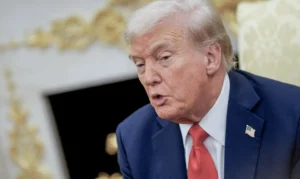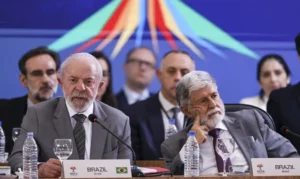
Chinese Foreign Minister Loses Patience with EU’s Chief Diplomat
It’s incredible that, after more than 3 years of the war in Ukraine, the EU still lives in the same La La Land where it seeks to convince China to ally with them to defeat Russia. And they are surprised when they are informed that, no, China will not commit geopolitical suicide on their behalf.
Wang Yi gave Kaja Kallas – the extremely Russophobic former Estonian prime minister who is now the EU’s foreign affairs chief – several harsh lessons in history and geopolitics.
The conversation must have been something like: Kaja, do you think we were born yesterday? Why on earth would we become hostile to our biggest neighbor and main partner? And then what, you give us a participation trophy and pat us on the head while you help the Americans contain us?
The above comments were made by French analyst Arnaud Bertrand on his X account.
The Chinese Message Between the Lines
According to the report, the Chinese minister told Kallas that China was not materially supporting Russia’s war effort, financially or militarily, insisting that if it were doing so, the conflict would have ended a long time ago.1
This is a subtle way of saying: don’t treat us as if we’re helping Russia because if you do, we might as well help them and then you’ll find out the difference between normal trade and here are a million drones, unlimited missiles, and 2 million PLA soldiers.
The European Strategic Hole
The EU has managed to put itself in conflict with all three major world powers simultaneously.
They are treated as vassals by an increasingly aggressive Washington, are in open conflict with Moscow, and are receiving history lessons from a Chinese Foreign Minister who barely hides his contempt for their moral duplicity.
The European response to this disastrous strategic situation? Apparently vassalizing themselves even further to Washington, doubling down on the war with Moscow, and asking Beijing to kindly commit geopolitical suicide on their behalf. The height of EU diplomacy.
The Facts Behind the Analysis
The South China Morning Post report reveals crucial details of Wednesday’s meeting between Wang Yi and Kaja Kallas. During a four-hour debate on a wide range of geopolitical and commercial grievances, the Chinese minister was direct: Beijing does not want to see a Russian defeat in Ukraine because it fears that the United States will then direct its entire focus to China.2
This statement, made to the former Estonian prime minister who recently assumed the post of EU foreign affairs chief, confirms what many in Brussels believe to be Beijing’s position, but contrasts with public Chinese statements. The Chinese Foreign Ministry regularly states that China is not a party to the war.
The meeting also revealed the underlying power dynamics of China-EU relations. Wang Yi offered Kallas several harsh lessons in history and geopolitics, with some EU officials feeling that he was giving her a lesson in realpolitik.3 Part of that lesson focused on Beijing’s belief that Washington will soon turn its full attention eastward.
Chinese Rationality Versus European Strategic Stupidity
What makes the situation even more embarrassing for Europe is that the Chinese position is perfectly rational from a geopolitical point of view. Why would China become hostile to its biggest neighbor and main trading partner to please a Europe that will ultimately follow America’s lead in Chinese containment?
The four-hour diplomatic marathon between Wang Yi and Kallas perfectly illustrates the strategic impasse Europe finds itself in. While Brussels continues to operate under the illusion that it can convince Beijing to abandon Moscow, China clearly sees the broader geopolitical game: a Europe vassalized by the United States offers no viable strategic alternative to the Sino-Russian partnership.
The EU’s Dire Strategic Situation
All this illustrates the dire strategic situation in which the EU finds itself. Europe has managed to put itself in a position where it has no real strategic allies, only a dominant protector (the United States) and two powerful adversaries (Russia and, increasingly, China). This is not a position of strength, but of profound strategic vulnerability.
Europe has not only lost its strategic autonomy but also its ability to understand the basic geopolitical realities that govern relations between great powers.
The meeting exposed the shameful European vassalage in the face of a multipolar world.
Chinese patience with this moral duplicity, as demonstrated by Wang Yi’s history lessons, seems to be reaching its end. The European response continues to be more of the same recipe that put them in this situation: more vassalage to Washington, more confrontation with Moscow, and more naive requests for Beijing to commit geopolitical suicide on their behalf.








